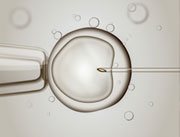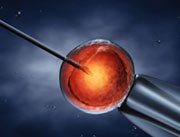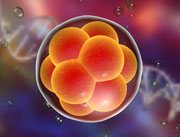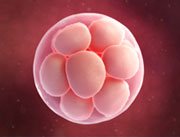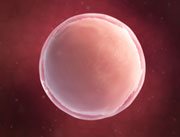Egg donation IVF (Ovodonation)

Egg reception from a suitable and anonymous donor and in vitro fertilization with partner´s sample sperm. The embryo/s obtained in the laboratory are transferred to patient´s uterus expecting they will implant and give rise to a pregnancy. Donated eggs may come from our bank or from a fresh donation.(we offer both synchronous (fresh) and asynchronous (frozen) egg donor cycles.
How it works
We make it easy for you!
- We finance your treatment to make you easier to pay it in terms
- We collaborate with the main health insurance companies (coverage according to policy)
- We explain in detail what it is included in each treatment to avoid surprises.
Type of patient
Women between 18-52 years of age in good physical an mental condition
Precio* en IMF Easyfiv %precio%€
IMF Easyfiv - IMF collaborating center authorised with register number: CS-0001How it works
A group of oocytes is obtained from a compatible anonymous donor with recipient´s blood group and phenotype.
Eggs are obtained from physically and mentally healthy women under clinic, analytic and genetic monitoring, without pathological background either genetic or inherited diseases according to applicable law.
These eggs can be obtained from our own egg banking or by synchronizing your cycle with a chosen egg donor´s treatment in a fresh cycle.
When the woman's cycle determines it, the man will be asked to provide a sperm sample by masturbating into a specimen cup usually on the same day the treatment takes place. The sperm sample is processed in order to increase the vigor of the spermatozoa through centrigugation and a technique named swim-up.
If possible, motile and optimal shape spermatozoa is selected one by one, eventhough ICSI can be performed with any available spermatozoon from surgery or ejaculated samples, whatever are the sperm motility, morphology or quantity. Afterwards it´s directly injected into each egg after immobilization through microinjection (ICSI). Intracytoplasmic sperm injection (ICSI) is carried out in the laboratory and subsequent incubation and monitoring is performed to check that the egg has been fertilized correctly, producing developing embryos.
The obtained embryo is transferred into the woman´s womb through a painless process where usually there is no need for sedation, and after which rest is recomended. The gynecologist introduced the embryo using a soft catheter under ultrasound guidance.
From 10-12 days after the embryo transfer, the blood test can be performed to identify the presence of the Beta-CGH subunit, confirming the diagnosis of pregnancy.
Qué incluye el precio
- Every monitoring ultrasound during endometrial preparation in the real cycle
- Egg donor compensation or procurement from our own bank
- Partner´s sperm examination and processing
- In vitro fertilization in the lab by intracytoplasmic sperm injection
- Incubation and embryo culture for a period of 2 or 3 days according to medical indication
- Embryo transfer to woman´s uterus
- Gynecological consultation to confirm your pregnancy
- For international patients an increase will apply in concept of accompaniment, translation and document management. Consult the price here.
Your Ovodonation treatment at a special price
We have an active promotion on this fertility treatment, with several possible options. Discover them below!IVF with donor eggs - 6 oocytes: 4.600€ + test cycle, fertility assessment, semen analysis, donor antigen and results consultation FREE
IVF with donor eggs - 8-10 oocytes: 6.300€ + test cycle, fertility assessment, semen analysis, donor antigen and results consultation FREE
IVF with donor eggs and sperm - 6 oocytes: 4.990€ + test cycle, fertility assessment, semen analysis, donor antigen and results consultation FREE
IVF with donor eggs and sperm - 8-10 oocytes: 6.700€ + test cycle, fertility assessment, semen analysis, donor antigen and results consultation FREE
Book now your 1st free visit to get your discount.(*Discount cannot be combined with other offers or promotions. All ovodonation procedures are included without the possibility of cancellations during the treatment. Consult conditions at the clinic) -->



